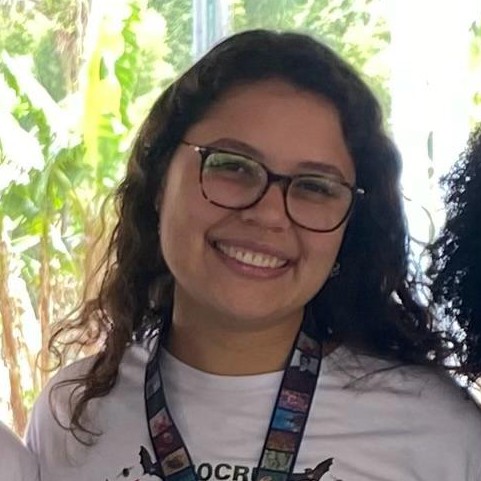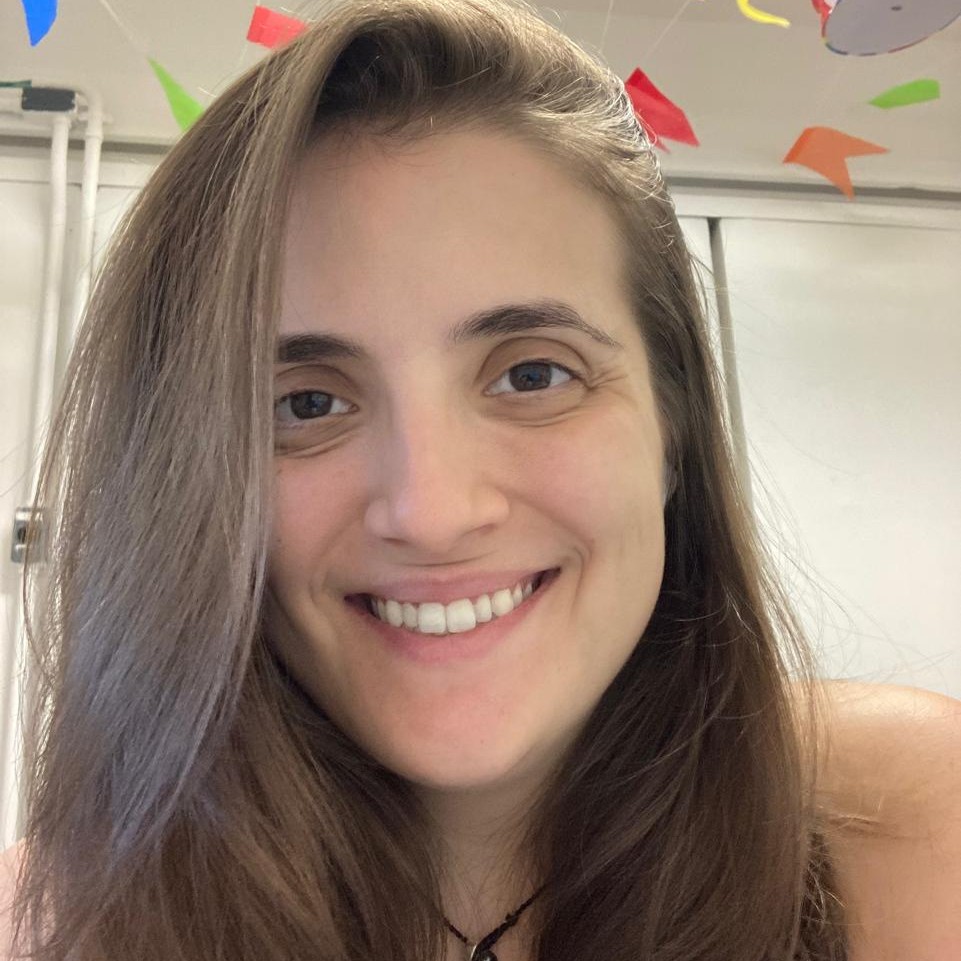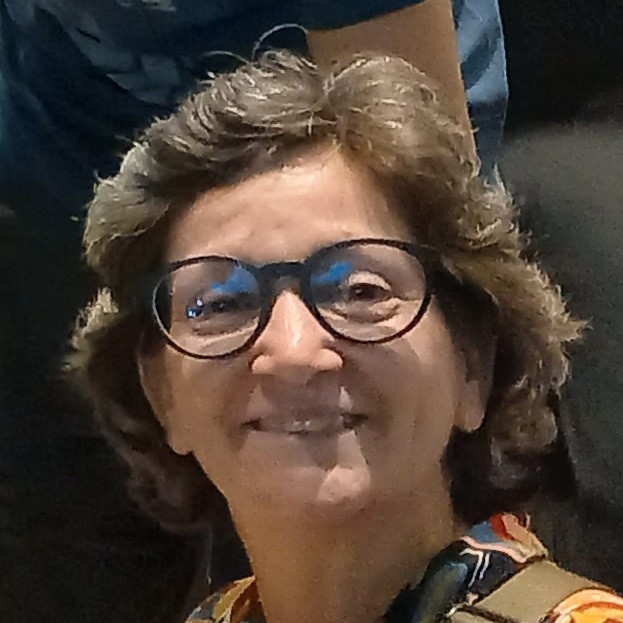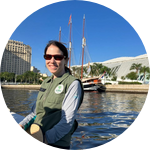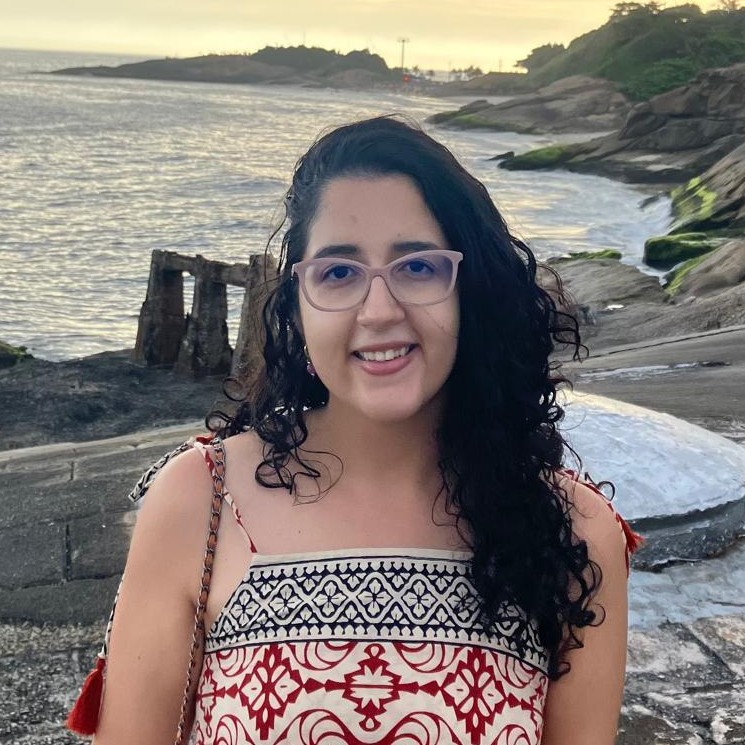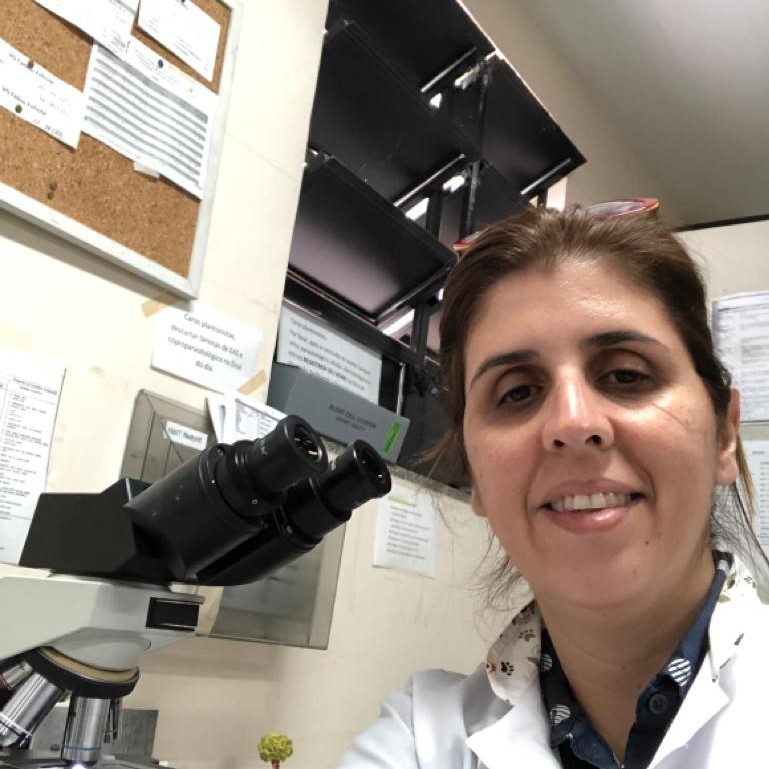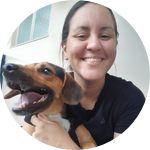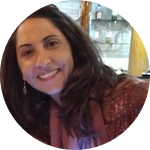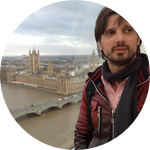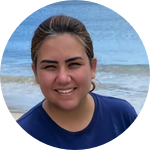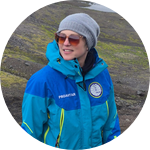About This Project
Animals living in anthropologically altered habitats are constantly threatened by possible zoonotic infections. We are studying brown boobies and magnificent frigatebirds from a colony in the Cagarras Archipelago, located less than five kilometers from a densely populated beach in Rio de Janeiro, Brazil, to find out whether they are infected by zoonotic strains of adenovirus, herpesvirus and influenzavirus, which could indicate the interference of human practices in wildlife.
Ask the Scientists
Join The DiscussionWhat is the context of this research?
Anthropological actions that cause environmental alterations, such as global warming, biodiversity loss and increasing ocean pollution, are associated with emerging infectious diseases. Throughout history, the majority of human populations grew close to the coasts. Collateral damage can emerge from this close contact between humans and animals, such as zoonotic infections, which have been detected and associated with disease outbreaks in seabirds populations, including frigatebirds colonies. For example, the Cagarras Archipelago, situated less than five kilometers from a densely human-populated beach and less than two kilometers from an underwater sewage station in Rio de Janeiro, is home to a colony of frigatebirds and brown boobies. In this context, the possibility of pathogen transmission between different species and, therefore, emerging of zoonotic diseases is increased, and needs to be studied and understood.
What is the significance of this project?
Monitoring and understanding the epidemiological cycle of zoonotic viruses in wildlife is one of the pilars of the One Health approach. The One Health concept is based on the idea of interdependence between animal, environmental and human health. Therefore, studies that address infectious pathogens for humans and animals, and their effects on individuals' health, should be highlighted and encouraged. In this particular study, we focus on a colony of seabirds living less than five kilometers from a densely human-populated beach and less than two kilometers from an underwater sewage station. By determining the prevalence of zoonotic viruses found in these individuals and accessing their health status, whether they are infected or not, we get closer to predicting and anticipating possible zoonotic disease outbreaks in the human population living in this area, with close contact with these animals.
What are the goals of the project?
The main goal of the project is to determine whether zoonotic viral infections are circulating in the population of seabirds living close to intensely urbanized areas in Rio de Janeiro, and how these infections affect the health status of these animals, associating virus detection and clinical-hematological exams. So far, we have collected 241 cloacal swabs/feces samples and 50 blood samples from 77 frigatebirds and 114 brown boobies. We perform PCR for virus detection in the cloacal swabs/feces samples and associate the results with the findings in the blood count and biochemistry of each animal. The project was implemented in february 2022 and is now an ongoing master's degree project from the Oswaldo Cruz Foundation, started in march 2024. The goal is to continue the project for another year, reaching 101 blood samples collected, so the statistics and correlations between virus detection and blood analysis can be representative.
Budget
The work begins with capturing and collecting animal samples. The birds are captured on two isles from the Cagarras Archipelago, less than five kilometers from a densely populated beach in Rio de Janeiro, accessible only by boat. Usually, the animals, being in their natural habitat, stand close to their nests. Therefore, in order to capture them and collect the samples we need, a variety of specific materials and equipments are needed to avoid disturbing the environment.
Once the field activity is done, we take the samples to the virology laboratory, where we perform nucleic acid extraction and PCR (polymerasis chain reaction) to test the animals for herpes, adeno and influenzaviruses.
Samples presumed positive for the targeted viruses infection, are sequenced and analized, so we can confirm wich type of viruses are present in the studied region.
The project is part of an ongoing Master's Degree project of the Oswaldo Cruz Institute, and is already implemented.
Endorsed by
 Project Timeline
Project Timeline
This project was implemented in february 2022 and became part of an ongoing master's degree project in march 2024. Since then, we have captured and collected samples from 53 animals. We expect to collect animal samples for another six months. We hope to capture 101 animals by the end of field activities, and then focus solely on laboratory demands, such as virus detection and sequencing and blood examinations, as well as data analysis and correlation.
Mar 17, 2025
Project Launched
Sep 01, 2025
Field work ends
Dec 31, 2025
Laboratory analysis ends
Feb 28, 2026
Data analysis ends
Mar 31, 2026
Present the completed study and reach the project goals
Meet the Team
Affiliates
Affiliates
Affiliates
Affiliates
Affiliates
Affiliates
Joana Medina Maçaira
I am a master’s student in the Biodiversity and Health postgraduate program at the Oswaldo Cruz Institute.
As a veterinarian, I have a deep passion for free-ranging animals, particularly marine wildlife. During my undergraduate studies, I devoted my time to gaining practical experience in wildlife rehabilitation centers, aquariums, and similar institutions.
I was also a scientific initiation fellow at the Oswaldo Cruz Foundation, where I spent two years studying the infection rate of Rotavirus A in Atlantic Forest bats.
Although my previous research focused on bats, my master’s project explores how the close interactions between seabirds and coastal human populations influence the health of these animals.
The study is already implemented and progressing well, with collaborative efforts from other scientists, and I am optimistic that our findings will provide valuable and potentially groundbreaking insights.
Raquel Gonzalez Boullosa Malheiro de Castr
Hello, everyone! My name is Raquel, and my journey in Biology has been shaped by a broad and interdisciplinary approach.
I have experience in the fields of Ecology, Mastozoology, and Parasitology, with a focus on mammal ecology, community structure, parasite ecology, and the study of wildlife reservoirs and zoonoses, always aligning my work with the One Health concept.
Since childhood, I have nurtured a deep love for nature and animals, and this passion has led me to contribute to this incredible project along the coast of Rio de Janeiro, at the Cagarras Archipelago. This milestone reflects my vocation for conservation and the connection between health, nature, and science.
Larissa Schmauder Teixeira da Cunha
Holds a degree in Biological Sciences with a specialization in Ecology from the Federal University of Rio de Janeiro (UFRJ, 1994), a Master’s in Ecology from the Graduate Program in Ecology at UFRJ (2009), and a Ph.D. in Biological Sciences from the Carlos Chagas Filho Biophysics Institute at UFRJ (2014). Currently, coordinates studies with seabirds, at Mona Cagarras and NGI Alcatrazes, developed by the Mar Adentro Institute through the Coastal Islands Monitoring Project.
Represented the Mar Adentro Institute on the Advisory Council of the Natural Monument of the Cagarras Islands. Participated in the Workshop for the Development of the National Action Plan for the Conservation of Seabirds (PAN Aves Marinhas) and is part of the Technical Advisory Group for the first management cycle of the PAN Aves Marinhas, covering the period from 2024 to 2029.
Has extensive experience in monitoring persistent toxic substances and reproductive success in seabird colonies along the Brazilian coast and in Antarctica.
Tatiana
Holds a Bachelor's degree and a Teaching degree in Biological Sciences from UERJ - State University of Rio de Janeiro (1998) and a Master's degree in Biology (Ecology) from UERJ (2001). Has academic experience in the field of Ecology, with an emphasis on Ecosystem Ecology, working primarily on the following topics: Atlantic Forest and small mammals. Since 2002, has been an environmental analyst, initially at IBAMA and, since 2010, at the Chico Mendes Institute for Biodiversity Conservation (ICMBio).
Amanda de Oliveira Alcantara
I am a veterinarian, graduated from the Federal Fluminense University (UFF). I am currently a PhD student in the Postgraduate Program in Veterinary Medicine (Animal Clinic and Reproduction) at UFF. I completed a residency in Veterinary Clinical Pathology and a master’s degree at the same institution. I have experience in clinical laboratory tests for domestic and wild animals.
Aline Moreira de Souza
Veterinary doctor and Associate Professor IV in the Department of Veterinary Pathology and Clinic at the Faculty of Veterinary Medicine at Federal Fluminense University (UFF). Holds a master's degree (2002) and a doctorate (2009) in Veterinary Medicine from UFF, specializing in surgery and clinical veterinary medicine, with a thesis in veterinary clinical pathology.
Since 2012, has overseen the Veterinary Clinical Laboratory (LABHUVET) at the Professor Firmino Mársico Filho University Veterinary Hospital. Expertises in Veterinary Medicine with a focus on Clinical Pathology of domestic and wild animals, addressing topics such as hematological, hemostatic, and biochemical changes associated with animal diseases and parasitological, serological, and molecular diagnosis of hemoparasites, including zoonotic agents.
Faculty member of UFF's Postgraduate Program in Veterinary Medicine (Clinical and Animal Reproduction) and UFF's Veterinary Medicine Residency Program. Actively involved in community outreach, coordinating the "Open Laboratory" program and diagnostic support projects for aquatic animals (PADAQUA) and stray animals (PADAE). Since 2021, has been the administrative director and founding member of the Brazilian Association of Veterinary Clinical Pathology (ABPCV).
Beatriz Vilete Dias
Hello! I have a Master's degree in Science from the Oswaldo Cruz Institute (IOC), a degree in Veterinary Medicine from the Federal Rural University of Rio de Janeiro (UFRRJ), and a degree in Agroecology from the Technical College of UFRRJ. I have experience in clinics for domestic and wild animals, analyses of animals with sexual anomalies and determining the sex of birds through DNA testing. I currently work with the diagnosis of viruses with zoonotic potential wild animals in the Laboratory of Comparative and Environmental Virology (LVCA-IOC).
Marina Galvão Bueno
Graduated in Veterinary Medicine from the University of São Paulo (2002), with a specialization in wildlife clinical care and management from the São Paulo Zoo Foundation. Completed a doctorate in the Department of Pathology at FMVZ-USP, focusing on animal parasitology and conservation medicine of non-human primates. For two years, coordinated and performed veterinary activities in a wildlife translocation project involving primates.
Served as the technical lead and coordinator of conservation medicine activities at the Mamirauá Sustainable Development Institute (IDSM) in Tefé, Amazonas. Since 2015, has been a researcher at the Oswaldo Cruz Foundation (Fiocruz), starting in the Institutional Biodiversity and Health Program. Currently, is part of the Laboratory of Comparative and Environmental Virology (LVCA/IOC) at the Oswaldo Cruz Institute (IOC/Fiocruz), conducting research in animal virology and teaching in the IOC's Biodiversity and Health Graduate Program.
Also coordinates the "Monitoring Network in Ecology and Zoonoses in the One Health Approach" at IOC/Fiocruz, is a member of the Animal Use Ethics Committee (CEUA/Fiocruz), serves on the Board of the Wildlife Disease Association Latin America Section (WDA-LA), and is an associate researcher at the Brazilian Institute for Conservation Medicine Tríade.
José Júnior França de Barros
Graduated in Pharmacy-Biochemistry from the State University of Paraíba-UEPB (1998), he has a Masters and Doctorate in Sciences (Microbiology and Immunology) from the Paulo de Góes Institute of Microbiology-Federal University of Rio de Janeiro-UFRJ (1999-2005). He was a consultant in Molecular Biology at the Pan American Foot-and-Mouth Disease Center (OPS/WHO). He is currently a Researcher in Public Health at the Molecular Virology Laboratory (LVM) of the Instituto Oswaldo Cruz-IOC-Fiocruz-RJ (Ministry of Health-MS / Brazil), acting as a Virologist. Coordinator and professor of Virology at Escola Politécnica de Saúde Joaquim Venâncio-EPSJV (2017-2019) and of the Technical Course in Biotechnology (CTB) of the IOC. He is a guest professor, course coordinator and advisor in the Postgraduate Program in Microbiology at Fundação Técnico-Educacional Souza Marques (FTESM). He is Quality Manager at the LVM Laboratory and a member of the Internal Commission for the Development of the Career Plan and Positions in Science, Technology, Production and Innovation in Public Health at Fiocruz (CIPCSP). He has experience in extracting and preparing plant extracts for the evaluation of their antimicrobial activity and in the detection of aflatoxins in foods (Grains / Cereals and seeds), by means of chromatographic techniques. In Virology, he develops research projects in the following viral families: Orthomyxoviridae (purification and kinetic characterization and specificity of viral neuraminidase and lectins), Picornaviridae (viral persistence in an animal host, generation of new variants and molecular epidemiology), Flaviviridae (mutations in the virus of hepatitis C associated with clinical course of infection, hepatocarcinogenesis and therapeutic response and phylogenetic analysis), Hepadnaviridae (Occult infection and gene recombination). His studies also involve the development and/or improvement of viral diagnostic methodologieshttp://lattes.cnpq.br/10826610...
Marthiellen Roosevelt de Lima Felix
I have a degree in Aquaculture Engineering from UFSC, with internships at the Laboratory of Biology and Freshwater Fish Cultivation (LAPAD) and NEPAQ, where I worked on detecting OIE-notifiable diseases. During my undergraduate studies, I contributed to research at the Plant Cell Biology Laboratory, focusing on the introduction of the species Kappaphycus alvarezii in Florianópolis.
For my Master’s in Biology of Plants, Algae, and Fungi, I evaluated the impact of heavy metals on algal growth.
Additionally, I hold a Veterinary Medicine degree from UFF, with internships in clinical practice and Clinical Pathology, followed by a Residency in Veterinary Clinical Pathology. Since 2019, I have been working as a freelance professional and on-call Clinical Pathologist in various clinics across Rio de Janeiro, Niterói, and Maricá.
Currently, I am a Master’s student in the Graduate Program in Veterinary Medicine (Clinic and Animal Reproduction), with a research project focused on Clinical Pathology of wild animals. My academic and professional journey reflects my passion for animal health and my commitment to both research and clinical practice.
Maria Ogrzewalska
I am a researcher, ornithologist and biologist. I hold a Master's degree in Biology from the University of Warsaw, Poland, a Ph.D. and two postdoctoral degrees in Experimental Epidemiology Applied to Zoonoses from the University of São Paulo, Brazil.
I have experience in parasitology, molecular biology, ecology, and epidemiology related to emerging diseases and environmental changes. Since 2014, I have been a public health researcher at the Oswaldo Cruz Institute (IOC), Oswaldo Cruz Foundation (FIOCRUZ), in Rio de Janeiro. I worked in the Hantavirus and Rickettsioses Laboratory (2014-2019) and have been working in the Respiratory Viruses, Exanthematous Viruses, Enteroviruses, and Viral Emergencies Laboratory since 2019, focusing on animal-origin viruses.
Lab Notes
Nothing posted yet.
Project Backers
- 4Backers
- 2%Funded
- $73Total Donations
- $18.25Average Donation

